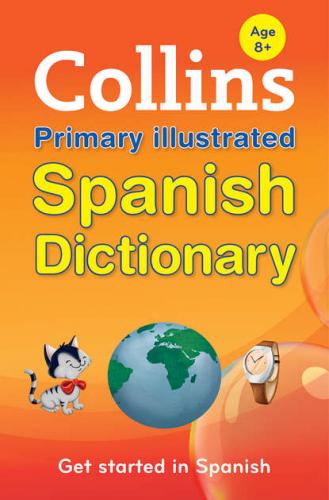1 to stop ¡Detenlos! Stop them!
2 to arrest Han detenido a los ladrones. They’ve arrested the thieves.
■ detenerse to stop Nos detuvimos en el semáforo. We stopped at the lights.
el detergente NOUN
detergent
detrás ADVERB
behind El resto de los niños vienen detrás. The rest of the children are coming on behind. detrás de behind Se escondió detrás de un árbol. He hid behind a tree.
devolver VERB
1 to give back ¿Me puedes devolver el libro que te presté? Could you give me back the book I lent you?
2 to take back Devolví la falda porque me iba pequeña. I took the skirt back as it was too small for me.
3 to throw up
di VERB
1 ▷see decir Di, ¿qué te parece? Tell me, what do you think?
2 ▷see dar Se lo di a ella. I gave it to her.
el día NOUN
day Pasaré dos días en la playa. I’ll spend a couple of days at the beach. Es de día. It’s daylight. ¿Qué día es hoy? What day is it today?/What’s the date today?
Language tip
¿qué día es hoy? has two meanings. It can be translated as what day is it today? and what’s the date today?
un día de fiesta a public holiday el día de los enamorados Saint Valentine’s Day el día de los Santos Inocentes the Feast of the Holy Innocents
Did you know…?
In Spanish-speaking countries the day people play practical jokes on each other is 28 December día de los Santos Inocentes.
al día siguiente the following day ¡Buenos días! Good morning! todos los días every day
el diablo NOUN
devil
diagonal ADJECTIVE, FEM NOUN
diagonal en diagonal diagonally
el diamante NOUN
diamond
el diámetro NOUN
diameter
diario
diario can be an adjective or a noun.
A (FEM diaria) ADJECTIVE
daily la rutina diaria the daily routine la ropa de diario everyday clothes a diario every day Va al gimnasio a diario. He goes to the gym every day.
B MASC NOUN
diary
la diarrea NOUN
diarrhoea
dibujar VERB
to draw
No sé dibujar. I can’t draw.
el dibujo NOUN
drawing Me hizo un dibujo. She did me a drawing. los dibujos animados cartoons
el diccionario NOUN
dictionary
dicho VERB ▷see decir Ya te he dicho que no lo quiero. I’ve already told you that I don’t want it.
diciembre MASC NOUN
December
Language tip
Months are not written with a capital letter in Spanish.
en diciembre in December Nació el seis de diciembre. He was born on the sixth of December.
diciendo VERB ▷see decir Como iba diciendo … As I was saying …
diecinueve (FEM diecinueve) ADJECTIVE, PRONOUN
nineteen Tengo diecinueve años. I’m nineteen.
el diecinueve de julio the nineteenth of July Nació el diecinueve de julio. He was born on the nineteenth of July.
dieciocho (FEM dieciocho) ADJECTIVE, PRONOUN
eighteen Tengo dieciocho años. I’m eighteen.
el dieciocho de abril the eighteenth of April Nació el dieciocho de abril. He was born on the eighteenth of April.
dieciséis (FEM dieciséis) ADJECTIVE, PRONOUN
sixteen Tengo dieciséis años. I’m sixteen.
el dieciséis de febrero the sixteenth of February Nació el dieciséis de febrero. He was born on the sixteenth of February.
diecisiete (FEM diecisiete) ADJECTIVE, PRONOUN
seventeen Tengo diecisiete años. I’m seventeen.
el diecisiete de enero the seventeenth of January Nació el diecisiete de enero. He was born on the seventeenth of January.
el diente NOUN
tooth Me lavo los dientes tres veces al día. I clean my teeth three times a day. un diente de leche a milk tooth un diente de ajo a clove of garlic
la dieta NOUN
diet una dieta vegetariana a vegetarian diet
estar a dieta to be on a diet
diez (FEM diez) ADJECTIVE, PRONOUN
ten Tengo diez años. I’m ten.
Son las diez. It’s ten o’clock. el diez de agosto the tenth of August Nació el diez de agosto. He was born on the tenth of August.
la diferencia NOUN
